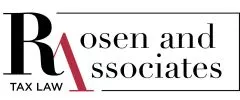Whether you operate as a sole proprietorship or corporation, it is important to understand the similarities and differences between them both in terms of tax filing requirements for your own tax planning purposes and to ensure compliance with the Canada Revenue Agency.
Sole Proprietorship vs Corporation
A sole proprietorship is the simplest form of business structure, where an individual owns and operates the business. As a sole proprietor, you are personally liable for any business debt and obligations. On the other hand, a corporation is considered to be a separate legal entity from its shareholders. This means that a shareholder of a corporation would not held personally liable as they benefit from limited liability protection (depending on which type of corporation has been created). Furthermore, corporations are unique as they are able to issue dividends to shareholders, which are taxed at a different rate than salaries.
This guide will provide you with the essential information that you need to know for filing your taxes as a sole proprietorship or corporation.
What You Need to File
One of the key differences between the tax filing requirements for sole proprietorships and corporations is what forms you need to file. As a sole proprietor, you are required to report all income that you earn from business activities each year as a part of your Form T1, Income Tax and Benefit Return. You also need to declare your business income and expenses on Form T2125, Statement of Business or Professional Activities. If you are a sole proprietor of more than one business, you will also be required to submit separate T2125 forms for each different business. In contrast, corporations must use Form T2, Corporate Income Tax Return, to report their taxable income and deduct eligible expenses each year regardless of whether they have any taxable income. Additionally, corporations are also required to prepare and attach annual financial statements or the General Index of Financial Information when they submit their tax returns.
When You Need to File
While both sole proprietorships and corporations are required to report their business income on an annual basis, the deadline for when they are required to do so may vary. The key distinction is that a sole proprietorship typically reports its income on a calendar-year basis, whereas a corporation's tax year is its fiscal period, which can be no longer than fifty-three weeks. This means that those who run sole proprietorships are required to have their income tax filed by June 15 of each year and must pay any outstanding tax liability by April 30 to prevent incurring any interest charges. When it comes to corporations, they must file their taxes no later than six months after the end of their fiscal periods. When setting up a new corporation, you may choose any tax-year end as long as the corporation's first tax year is not longer than fifty-three weeks from the date it was incorporated. Corporations may pay their outstanding tax liability in monthly or quarterly instalments. Any remaining balance after the instalments have been deducted at the end of the tax year must be paid by the balance-due day, which is typically two months after the end of the tax year.
GST/HST and Payroll
Despite the many differences between the tax filing requirements for sole proprietorships and businesses, the requirements for GST/HST and payroll accounts with the Canada Revenue Agency are generally the same. With both business structures, you are required to deduct and remit payroll taxes if you have employees, including income tax, Canada Pension Plan Contributions, and Employment Insurance premiums. However, it is worth noting that if you are a sole proprietor that earned less than $30,000 in four consecutive calendar quarters, you are not required to register for GST/HST accounts since you are deemed to be a small supplier. If this is not the case, regardless of your business's structure, you have an obligation to register for and collect GST/HST as well as file regular GST/HST returns based on your business's reporting period.
Overall, choosing which type of business is best for your goals can be a challenging decision. Contact us if you have any questions regarding the ideal business structure for your needs.
The content of this article is intended to provide a general guide to the subject matter. Specialist advice should be sought about your specific circumstances.



